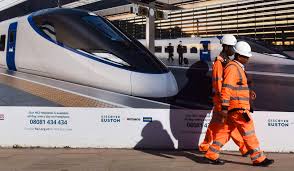
The Importance of Railway Audits in Ensuring Safety and Efficiency
Railway audits play a crucial role in maintaining the safety, reliability, and efficiency of railway systems. Conducted regularly by independent auditors or internal teams, these audits help identify potential risks, compliance issues, and areas for improvement within the railway infrastructure.
One of the key aspects of railway audits is safety. Ensuring that rail tracks, signals, rolling stock, and operational procedures meet stringent safety standards is paramount to preventing accidents and ensuring the well-being of passengers and staff. Auditors assess various safety measures such as track maintenance, emergency response protocols, and staff training to identify any gaps that need to be addressed.
Efficiency is another critical focus of railway audits. By examining operational processes, scheduling practices, maintenance procedures, and resource allocation, auditors can pinpoint inefficiencies that may be impacting service quality or costing the railway company unnecessary time and money. Through these audits, opportunities for streamlining operations and improving overall performance can be identified.
Moreover, railway audits help ensure regulatory compliance. With strict regulations governing the railway industry to protect both passengers and the environment, audits verify that all legal requirements are being met. This includes adherence to safety standards, environmental regulations, labour laws, and other industry-specific mandates.
In conclusion, railway audits are essential for maintaining a safe, efficient, and compliant railway system. By conducting regular audits and addressing any identified issues promptly, railway companies can enhance their operations, reduce risks, improve service quality, and ultimately provide a better experience for passengers.
The Auditors Scrutinised: Who Monitors the Monitors in the UK?
3. Exploring the Various Audit Types within the Railway Sector
- What is the risk appetite of network rail?
- Who audits the auditors UK?
- What are the types of audit in railway?
What is the risk appetite of network rail?
The risk appetite of Network Rail refers to the level of risk that the organisation is willing to accept in pursuit of its strategic objectives. Network Rail, as a key player in the UK’s railway infrastructure, has a structured approach to managing risks associated with its operations. By defining its risk appetite, Network Rail sets clear boundaries on the types and levels of risks it is prepared to take on in order to achieve its goals effectively. This proactive stance enables Network Rail to make informed decisions, allocate resources efficiently, and prioritise safety and reliability within the railway network.
Who audits the auditors UK?
In the UK, the auditing of auditors is overseen by regulatory bodies such as the Financial Reporting Council (FRC) and the Institute of Chartered Accountants in England and Wales (ICAEW). These organisations set standards for audit quality and conduct inspections of audit firms to ensure compliance with regulations and best practices. Additionally, professional bodies like the Association of Chartered Certified Accountants (ACCA) and the Institute of Chartered Accountants of Scotland (ICAS) play a role in monitoring and regulating auditors to uphold integrity and accountability in the auditing profession. By subjecting auditors to rigorous oversight and scrutiny, these entities work towards maintaining trust in financial reporting and safeguarding the interests of stakeholders in the UK.
What are the types of audit in railway?
In the railway industry, there are several types of audits conducted to ensure the safety, efficiency, and compliance of railway operations. These audits include safety audits, which focus on assessing safety measures such as track maintenance, emergency response protocols, and staff training to prevent accidents and protect passengers and staff. Operational audits examine processes, scheduling practices, maintenance procedures, and resource allocation to identify inefficiencies and improve overall performance. Compliance audits verify adherence to regulatory requirements related to safety standards, environmental regulations, labour laws, and industry-specific mandates. Each type of audit plays a crucial role in maintaining the integrity and effectiveness of railway systems.
